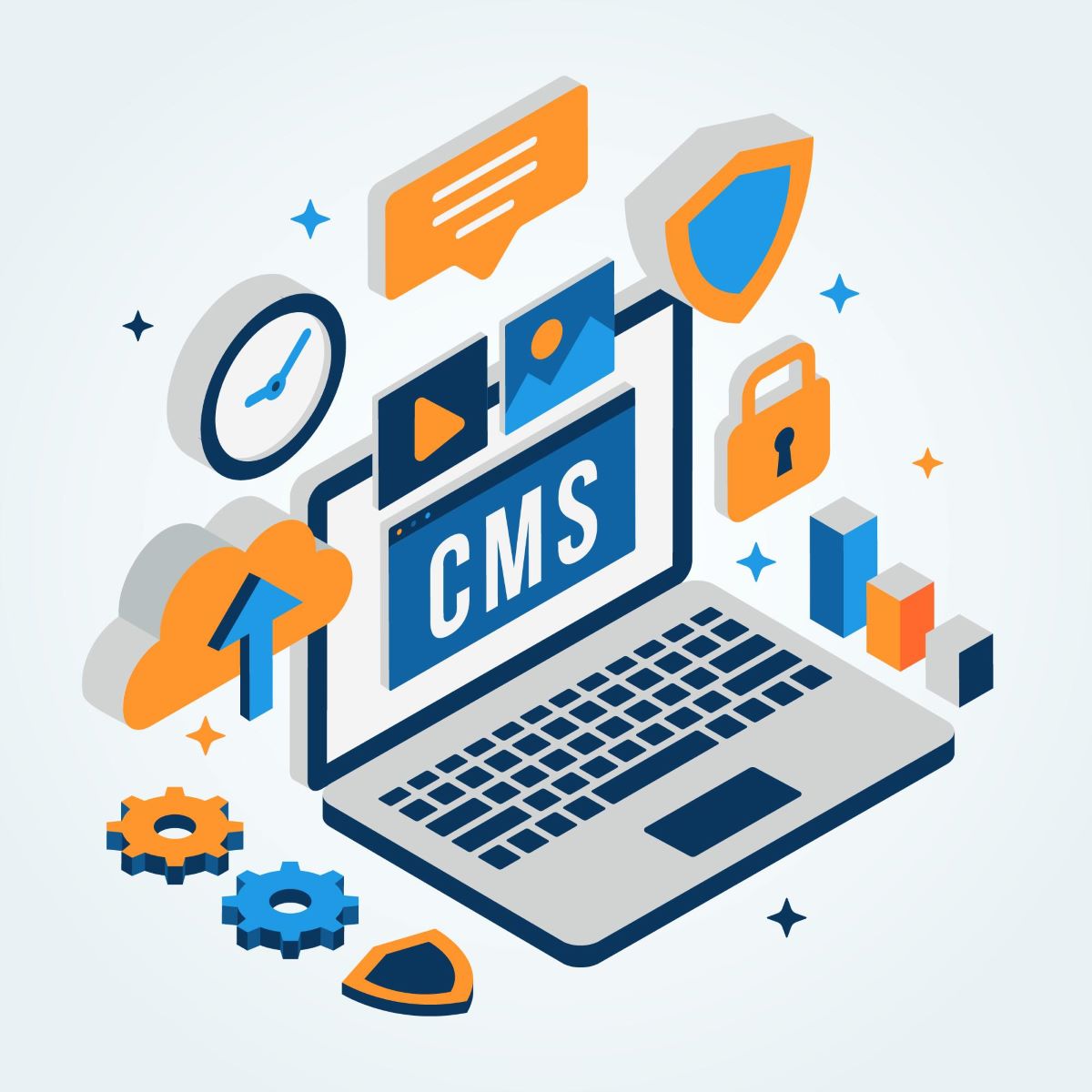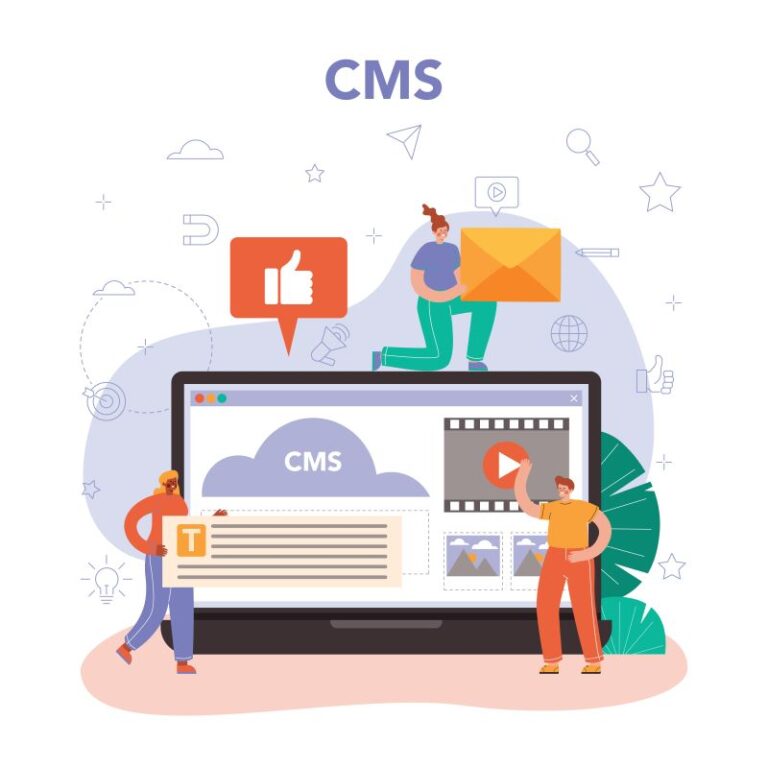Believe it or not, the choice of a Content Management System (CMS) can make or break the success of your website.
Whether you’re a small business owner, a blogger, or a web developer, selecting the right CMS is crucial for creating an engaging, user-friendly, and SEO-optimised online presence.
The CMS you choose can significantly impact your website’s overall performance, functionality, and user experience. A well-chosen CMS can streamline content management, enhance search engine visibility, and provide the flexibility to adapt to your changing business needs.
Conversely, an ill-suited CMS can lead to technical challenges, limited customisation options, and a suboptimal online presence that fails to connect with your target audience.
In this article, we’ll explore the top 10 most popular Content Management Systems (CMS) that are making waves in the industry today, catering to a wide range of needs and skill levels.
From the ubiquitous WordPress to the enterprise-grade Kentico, each of these CMSs offers unique features, strengths, and target audiences, empowering you to make an informed decision that aligns with your specific requirements.
Whether you’re a small business owner looking to establish an online presence, a blogger seeking a user-friendly platform to share your content, or a web developer tasked with building a complex, feature-rich website, this comprehensive guide will equip you with the knowledge to navigate the CMS landscape and select the perfect solution for your digital success.
1. WordPress

What is it? WordPress is undoubtedly the most popular CMS on the market, powering over 40% of all websites on the Internet.
Unique features: Its user-friendly interface, extensive plugin ecosystem, and robust community support make it an excellent choice for beginners and experienced users.
WordPress offers a wide range of customisation options, from simple blog setups to complex e-commerce solutions.
Who is it for? WordPress is a versatile platform suitable for small businesses, personal blogs, and complex e-commerce solutions.
2. Joomla
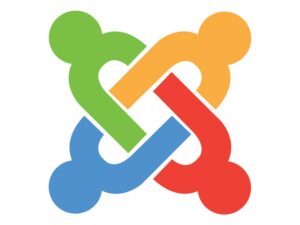
What is it? Joomla is a powerful and flexible CMS.
Unique features: With its intuitive administration panel and extensive library of extensions, Joomla allows users to create dynamic, engaging websites with ease.
Joomla’s strong focus on security and its large, active community make it a reliable choice.
Who is it for? Joomla is particularly well-suited for building complex, feature-rich websites, catering to the needs of businesses and organisations looking to establish a robust online presence.
3. Drupal
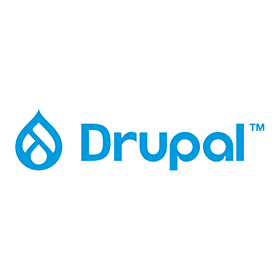
What is it? Drupal is a highly customisable and scalable CMS, known for its robust content management capabilities and advanced features.
Unique features: Drupal’s modular structure and extensive plugin ecosystem make it a popular choice among web developers and agencies, allowing them to create tailored solutions for their clients.
Who is it for? Drupal is particularly well-suited for building large-scale, enterprise-level websites with complex requirements.
4. Magento

What is it? Magento is a leading open-source e-commerce platform that is widely used for building sophisticated online stores.
Unique features: Its powerful features, such as advanced product management, inventory control, and payment processing, make it an excellent choice for businesses of all sizes looking to establish a strong online retail presence. Magento’s flexibility and scalability make it a popular choice among e-commerce professionals and web developers.
Who is it for? Magento is particularly well-suited for businesses of all sizes looking to establish a strong online retail presence.
5. Squarespace
 What is it? Squarespace is a user-friendly, all-in-one website builder that offers a visually appealing and intuitive platform for creating professional-looking websites.
What is it? Squarespace is a user-friendly, all-in-one website builder that offers a visually appealing and intuitive platform for creating professional-looking websites.
Unique features: Squarespace’s drag-and-drop interface, responsive design, and built-in e-commerce capabilities make it a popular choice for those looking to establish an online presence with minimal hassle.
Who is it for? Squarespace is particularly well-suited for small businesses, personal blogs, and portfolios, as it requires minimal technical expertise to set up and maintain.
6. Wix

What is it? Wix is another popular website builder that offers a simple and intuitive platform for creating stunning websites.
Unique features: Its drag-and-drop editor, extensive template library, and wide range of customisation options make it an attractive choice for users with little to no coding experience.
Who is it for? Wix is particularly well-suited for small businesses, personal websites, and creative portfolios, as it allows users to quickly and easily build a professional-looking online presence.
7. Typo3
What is it? Typo3 is a powerful and flexible CMS.
 Unique features: Its modular structure and extensive plugin ecosystem make it a popular choice among web developers and agencies, allowing them to create tailored solutions for their clients. Typo3’s strong focus on security, scalability, and multilingual support make it a reliable choice.
Unique features: Its modular structure and extensive plugin ecosystem make it a popular choice among web developers and agencies, allowing them to create tailored solutions for their clients. Typo3’s strong focus on security, scalability, and multilingual support make it a reliable choice.
Who is it for? Typo3 is particularly well-suited for building complex, enterprise-level websites, catering to the needs of organisations with complex content management requirements.
8. Craft CMS
 What is it? Craft CMS is a modern, developer-friendly CMS that is known for its flexibility and ease of use.
What is it? Craft CMS is a modern, developer-friendly CMS that is known for its flexibility and ease of use.
Unique features: Its intuitive administration panel, powerful content modelling capabilities, and robust plugin ecosystem make it a popular choice among web developers and agencies.
Who is it for? Craft CMS is particularly well-suited for building custom, content-heavy websites, as it allows for a high degree of customisation and control over the content structure.
9. Umbraco
![]() What is it? Umbraco is an open-source CMS that is known for its user-friendly interface and robust content management capabilities.
What is it? Umbraco is an open-source CMS that is known for its user-friendly interface and robust content management capabilities.
Unique features: Its flexible architecture and extensive plugin ecosystem make it a popular choice among web developers and agencies, allowing them to create tailored solutions for their clients.
Who is it for? Umbraco is particularly well-suited for building complex, content-heavy websites, as it offers a wide range of features and tools for managing and publishing content.
10. Kentico
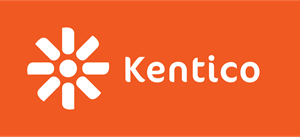 What is it? Kentico is a comprehensive CMS that is designed to meet the needs of enterprise-level organisations.
What is it? Kentico is a comprehensive CMS that is designed to meet the needs of enterprise-level organisations.
Unique features: Its powerful content management features, advanced marketing tools, and robust security measures make it a popular choice among large businesses and organisations.
Who is it for? Kentico is particularly well-suited for building complex, multi-lingual websites with advanced functionality, such as e-commerce, customer relationship management, and marketing automation.
Conclusion
The choice of a Content Management System is a critical decision that can have a significant impact on the success of your website.
Each of the CMSs featured in this article offers unique strengths and capabilities, catering to a wide range of needs and skill levels.
Whether you’re a small business owner, a blogger, or a web developer, carefully evaluating your requirements and exploring the features and capabilities of these top CMSs can help you make an informed decision and establish a strong online presence that resonates with your target audience.
Keep in mind that these CMS mentioned may not be the best fit for your business needs. If you are a mid to large-sized enterprise, you may want to consider other CMS such as Sitefinity, Sitecore or DotNetNuke (DNN).
If you need help selecting and building your website on a suitable CMS for your organisation, reach out to a web development company such as Websparks.
Websparks as a Choice Web Development Company
Websparks is a Singapore-based award-winning web design and development company with over 14 years of experience and over 550+ projects launched.
Our mission is to revolutionise the World Wide Web and to bring sparkles to our clients’ digital web presence. We provide a full range of web services and have many satisfied customers to date.
Visit Websparks to view our portfolio.
Contact us for a consultation on how we can partner with you to build your digital dreams today.

